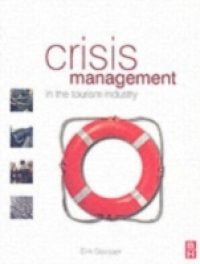The tourism industry is arguably one of the most important sources of income and foreign exchange, and is growing rapidly. However, national and international crises have huge negative economic consequences. Crisis Management in the Tourism Industry aims to illustrate the theories and actions that can be taken to better understand consumer, economic and environmental reaction, in order for the businesses involved to be more prepared for such events. Now in its second edition, this text has been fully revised and extended to include recent events such as Bali, SARS and international terrorism, expanding sections such as:* Terrorism and criminal activities* Risk perceptions and the influencing variables* The stakeholder concepts* Analysis methods- visibility of advantages/disadvantages of methods* Marketing instruments and best practicesWritten by one of the world's leading experts from the World Tourism Organisation, the book has global coverage, and presents international, up-to-date case studies and examples from countries such as the UK, Australia and USA. The book provides discussion of:* The influential effect of the mass media How crises effect the purchase decision process Destination branding/image and its manipulation Preventative crises management and strategiesCrisis Management in the Tourism Industry is an essential guide to explaining how the tourism industry can prepare and succeed in the face of the effects of crises.* Revised and updated to including recent events (especially Bali, SARS and international terrorism), new case studies and practical up-to-date information. * Understanding effects of crises on the tourism industry and how businesses can prepare and succeed in these times* Global coverage and perspective with cases and examples from the UK, Australia and USA. * Written by one of the world's leading experts from the World Tourism Organisation

